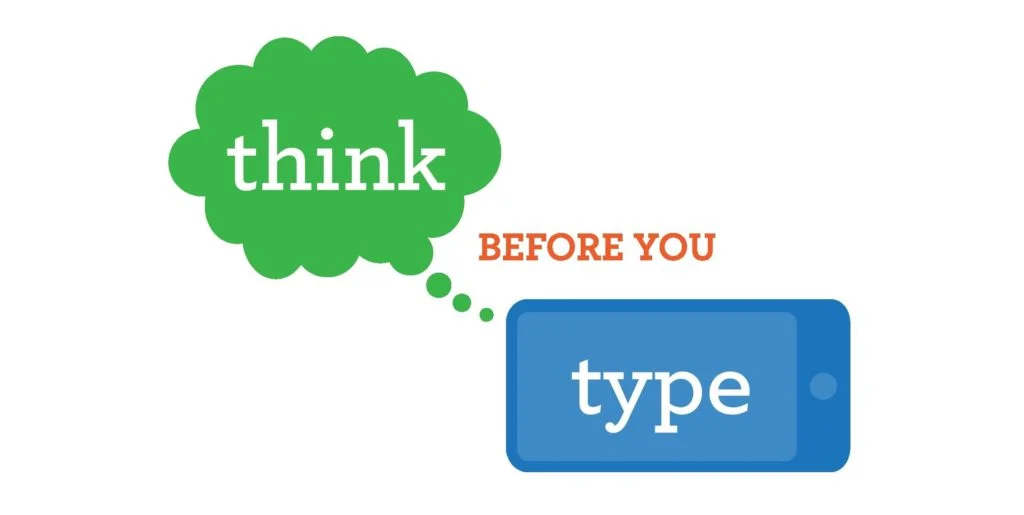An online classroom is in fact a classroom, it is important for students to recognize that. And certain behaviors are expected of you. When you communicate with both your peers and your instructors. Live online video sessions have become the replacement for face-to-face meetings. This will become your new classroom, staff meeting, interview, assessment, or review tool. As such, it is important that you keep in mind some simple rules and guidelines when interacting on these platforms. These guidelines for online behaviors and interactions are known as “netiquette”. In Netiquette 101: Rules to be followed ardently by Podium School we shall be reading about all the Do’s and Don’ts’s during online learning. If you want fair treatment from others and to build your personal brand, you need to understand netiquette.
Proper etiquette is nothing new for most people. You grew up with your parents constantly telling you to mind your manners. But in a digital age where the unwritten online “rules” are constantly changing, proper “netiquette” may seem a bit mystifying. Add in the atmosphere of an online classroom, and the proper netiquette guidelines don’t seem as easy as a “please” and “thank you.” The purpose of the following information is to help you be a more effective and successful student when communicating via email, chat rooms, or on discussion boards as a part of your online learning activities in the Fogelman College.
11 Netiquette Rules to keep you Well Mannered
Introduce Yourself

When starting an online conversation, the first thing to keep in mind is to Introduce yourself. Greet the person on the other end and let them know your name. Identification is key for any online discussion.
No YELLING, Please!

There’s a time and a place for everything – But in most situations typing in ALL CAPS is inappropriate. Most readers tend to perceive it as shouting. And will have a hard time taking what you say seriously, no matter how intelligent your response may be. Some people have vision issues, which is understandable, but there are ways to adjust how text displays. So, you can still see without coming across as angry or upset.
Sarcasm will backfire

Sarcasm can be the source of plenty of misguided arguments online. Since it is incredibly difficult to understand the commenter’s intent. What may seem like an obvious joke to you, could come across as offensive or rude to those who don’t know you personally. As a rule, it’s best to avoid sarcasm altogether in an online classroom. Instead, lean towards being polite and direct in the way you communicate to avoid these issues. Sarcasm also is known as the lowest form of intellect.
Don’t abuse the chat box

Chat boxes are incorporated into many online classes as a place for students to share ideas and ask questions related to the lesson. It can be a helpful resource or a major distraction – it all depends on how well students know their classroom netiquette.
Avoid asking questions that are irrelevant to the discussion, or talking about an unrelated topic. The chatbox is a learning tool and students need to avoid distracting their classmates with it. Use it instead to ask relevant questions and participate in class when the professor asks.
Attempt to find your own answer
/question-and-answer-sites-3995413-2-5b0881b5119fa80037a2f6cb.jpg)
The fifth strategy in this blog Netiquette 101: Rules to be followed ardently is to attempt to find your own answer first. If you’re confused or stuck on an assignment, your first instinct may be to immediately ask your instructor a question. But before you ask, take the time to try to figure it out on your own. Attempt to find the answers to any other questions on your own using a search engine like Google or maybe on Quora. If your questions remain unanswered after a bit of effort, feel free to bring them up with your instructor.
Set a respectful tone

An increasingly common netiquette blunder is treating e-correspondence with faculty and staff as an ongoing chat among friends. Every day may feel like casual Friday in an online classroom where you don’t see anyone in person. But a certain level of formality is still expected in your communication with instructors. Additionally, It’s good netiquette to use respectful greetings and signatures. Like full sentences and even the same old “please” and “thank you” you use in real life.
Use proper Grammar

Always try to use proper punctuation, spelling, and grammar. Trying to decipher a string of misspelled words with erratic punctuation frustrates the reader. Additionally, it also distracts from the point of your message. While this is something you should pay attention for all your virtual communication. It’s especially important for the papers and assignments you’ll turn in.
On the flip side of this, it’s important to be reasonable about others’ grammar mistakes. Nobody likes the grammar police, so scolding a classmate because they used “your” instead of “you’re” isn’t practicing proper netiquette. Please visit Podium School website to have a look at the grammar classes provided by us.
Submit files the right way

You won’t be printing assignments and handing to them to your teacher in person. So, knowing how to properly submit your work online is key to your success as an online student. Online course instructors often establish ground rules for file assignment submissions. For example, naming conventions that help them keep things organized or acceptable file formats. Ignoring these instructions is a common example of bad netiquette.
Think before you type

In class a passing comment spoken can be forgotten a few minutes later. But what you share in an online classroom is part of a permanent digital record. When it comes to personal information it is not only good practice to be guarded, but you need to be respectful towards others in an online classroom as you would be in a physical one.
Be attentive while reading

Take some time to read through each of the previous discussion post responses before writing your own response. If the original post asked a specific question, there’s a good chance someone has already answered it. Submitting an answer that is like a classmate’s, indicates to the instructor that you haven’t paid attention to the conversation so far.
Be kind and professional

The final strategy in this blog Netiquette 101: Rules to be followed ardently is to be kind and professional. Online communication comes with a level of anonymity that doesn’t exist when you’re talking to someone face-to-face. Sometimes this leads to people behaving rudely when they disagree with one another. Online students probably don’t have the complete anonymity that comes with using a screen name. But you could still fall prey to treating someone poorly because of the distance between screens. Make a point to be kind and respectful in your comments – even if you disagree with someone.
Final thoughts
All these mistakes come down to forgetting that an online classroom is still a classroom. Good netiquette means conducting yourself in an online class with the same respect, politeness, and professionalism that you would exhibit in a real-life classroom. Plus, practicing professional communication skills while you’re in school will serve you will in the workplace as well. Whether you end up working remotely or not.
Share with your friends





